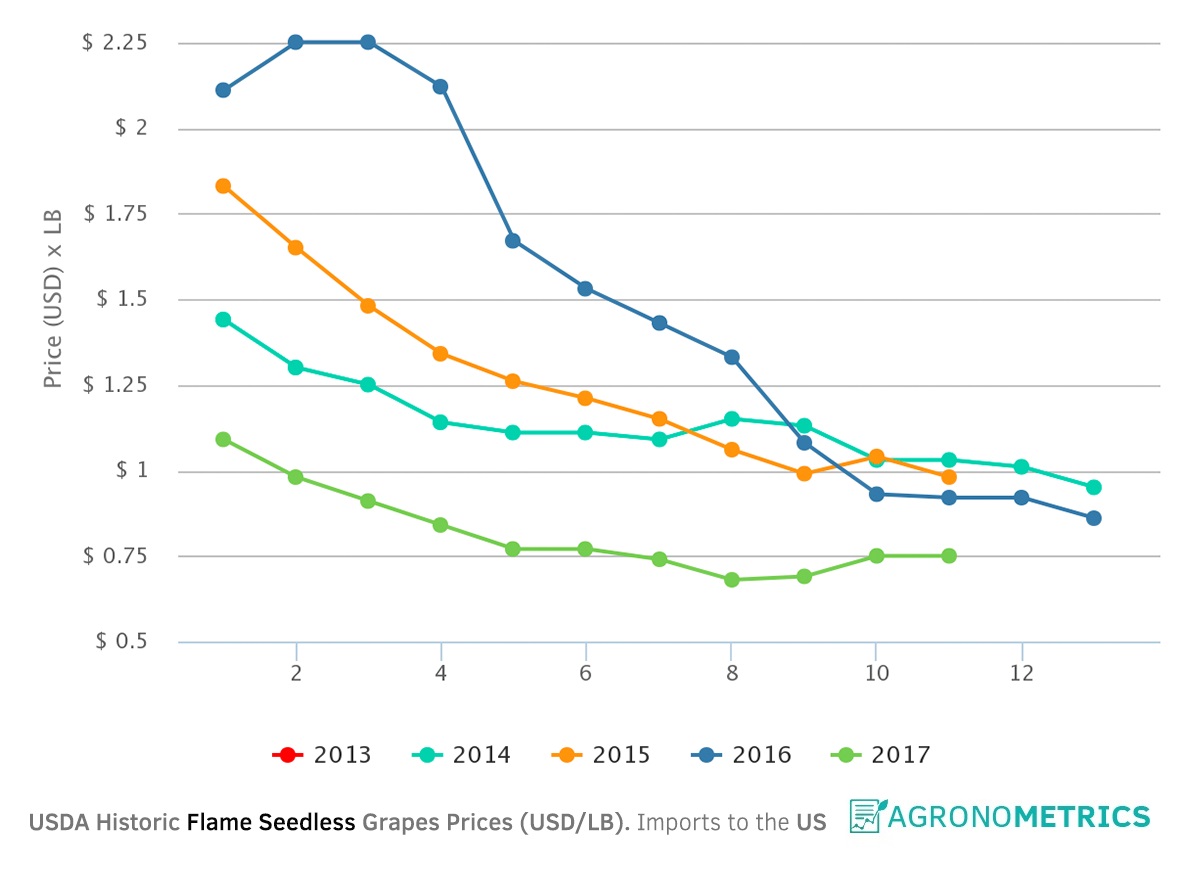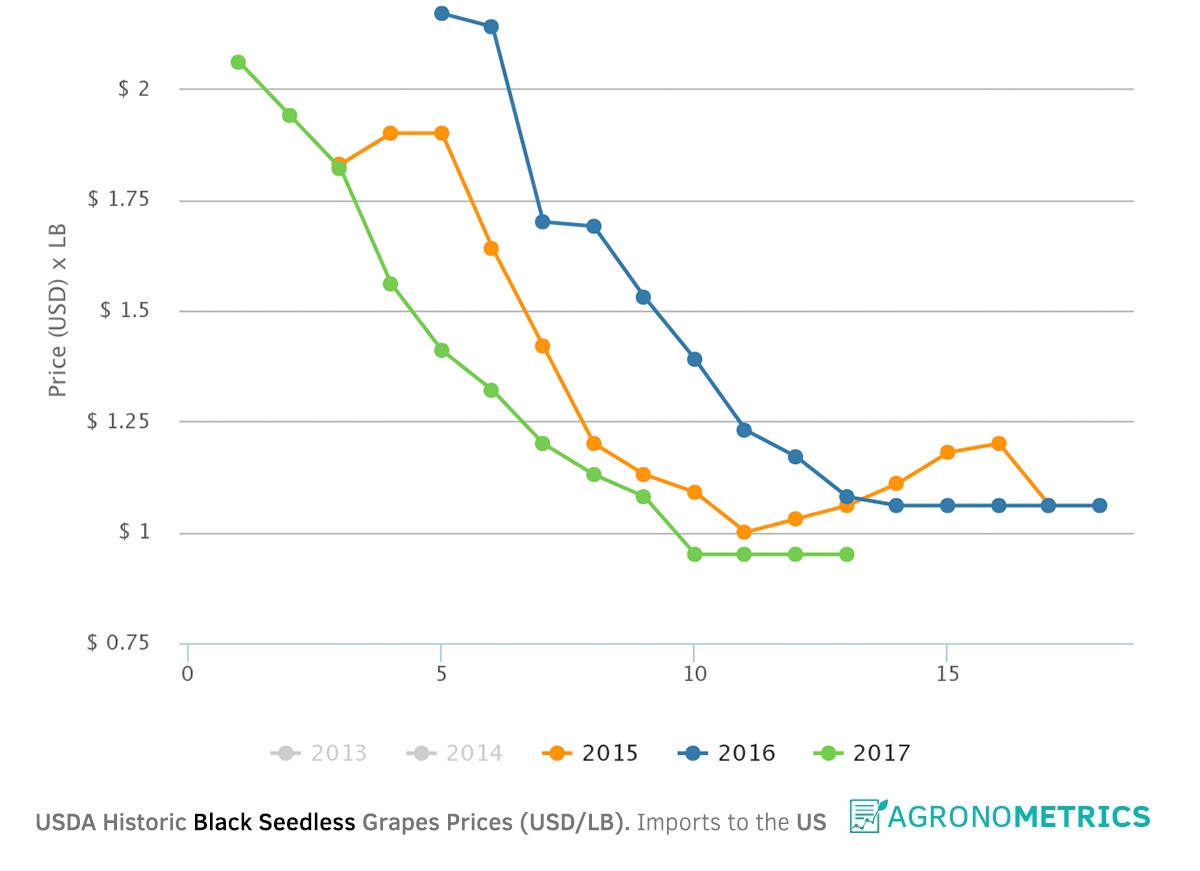"We have been overconfident" in grapes, says northern Chilean ag rep

Chile's Northern Agricultural Society (SAN) has called on government support for table grape growers who have been hit hard by low prices in the U.S. this season, blaming the sorry state of affairs on complacency in the sector.
An earlier season led to a greater concentration of exports to the U.S. during atypical periods, which ultimately pushed down prices to very low levels.
As can be seen in the following graph (varietal graphs to be found further down), average prices in the U.S. were often around a third lower in the campaign's early stages. It was only thanks to a rise in prices for the Thompson Seedless and Sugraone varieties that the average price rebounded in Week 10.
"It comes to light that we have been overconfident and that in this situation of confidence we have been left unprotected," said SNA president María Inés Figari.
Figari's comments were made during a seminar held recently in Limarí, bringing together growers and exporters from around the Coquimbo region to hear legal advice from the law firm Araya & Cia.
"There are at least three types of contracts, and it is imperative that exporters make contracts with the basic clauses and that they have a system for dispute resolution," said Araya & Cia international trade law expert Sebastián Norris.
"When you're dealing with such a sensitive commodity that could have problems, having a contract without that leaves you unprotected," he said.
"Reacting to a problem like this one, exporters should revise all types of contracts that they have. In this zone we have seen most of the contracts are as "free consignment" which means having prices according to the market, so if the market offers poor prices there isn't much you can do."
This underscores why protective clauses are key in contracts, he said.
"This is something that should mobilize everyone because of the importance of this activity for employment creation in our area," added Figari.
"We are many families who depend on agriculture, and we want the authorities to commit to us, to work with us and hear us. We don't want them to pay our debts, but to give support so we can have the working capital to keep developing our activity," added grower Julia Zepeda, who is also part of the Agrícolas de Los Morales de Monte Patria Small Growers Union.
Limari Governor Wladimir Pleticosic said measures were being taken to help affected farmers.
"This is a commercialization problem that growers had and it corresponds to the private sector, but it has repercussions in the public domain because our province and region is an area with a productive vocation in agriculture, and it would lead to unemployment and family subsistence problems," Pleticosic said.
"Together we have to look for a series of measures that support growers and find help for working capital which would allow them to get back on their feet again."
Deputy Luis Lemus said it was clear there was a "very week" export system at play.
"There is good production but we fail in the trading channel. There is a lot of investment in working capital and a lot of labor, however the market plays against farmers," Lemus said.
"Agricultural entities and exporters need to define whether they will take the judicial route to have certain guarantees and face what has happened. In the agricultural sector there are a lot of contracts based on people's word and trust, and that has to be corrected."
Related story: Chile: Decofrut downgrades Crimson grape export forecast amid color setbacks
Headline photo: www.shutterstock.com













































